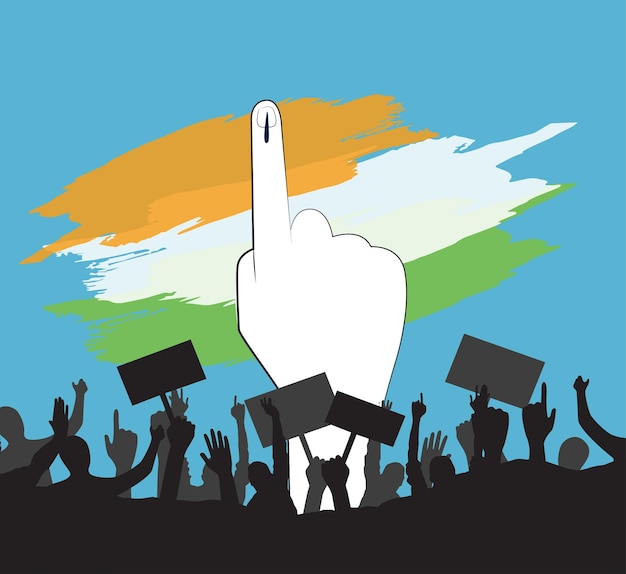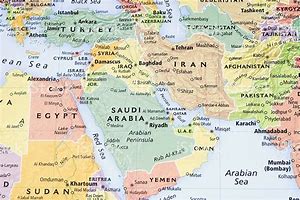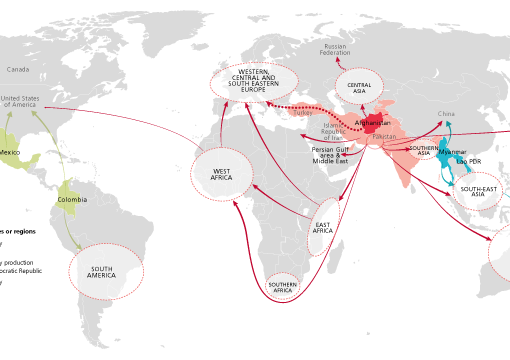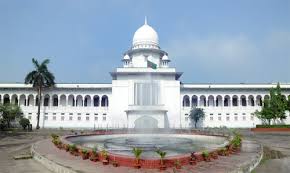For good and effective governance, elections are only the first step to come to grips with the problems staring at the people, who need to make their presence felt constantly by their representatives at every step rather than leaving it to the ballot box
by Prasad Nallapati
Who wins the on-going round of India’s parliamentary elections is no longer the moot point. What is of concern is how the elected government will remain accountable to the people.
Past experience was not very encouraging. Once get elected, most of these legislators become unreachable until the next elections five years later when they return to their constituencies to seek a fresh mandate.
Except paying lip-service, the elected representatives from the highest of the high to the lowest of the low have mostly become impervious to popular suffering. Arrogance of power has reached its zenith. And they believe they are divinely-ordained to rule their “jagir”.
In our `First-past-the-post’ system, a colonial legacy, peoples’ representatives often get elected with as low as 35-40 per cent vote share. It’s an irony that those rejected by majority of people come out victorious as their votes get dissipated among several other contestants.
Each contestant spends about Rs. 50-60 crores ($ 6-7 million) for a state assembly election and Rs. 150 crores ($ 18 million) for a Parliamentary poll. Elected or defeated, their focus is on recouping money spent and more of it to equip themselves for the next election. They have little time to attend to peoples’ grievances.
There is precious little that people can do to pin the representatives and the government to address their problems and take corrective measures in a time-bound manner.
The Press and Electronic Media have little appetite to highlight people’s plight and fight for their rights with Corporate Moguls in the ownership saddle to the glee of their political “bosses.”
Hence the question: What After Polls? Will History Continue to Repeat?
Well, the Constitution, which is invoked during the on-going poll rhetoric amidst claims that the BJP-led NDA would rewrite the statute, if voted, provides a template for accountability of the political executive.
The Courts of law are designed to check the political executive and legislature against violation of the rights of people.
PILs (Public Interest Litigation) have made the judiciary accessible to the people of all hues. But the legal fraternity’s ways and the high cost of litigation have made courts more a frustrating experience. Judicial pronouncements often come too late to be of much relief.
The bureaucracy, particularly the elite services, are shamelessly politicized on the basis of caste and money.
Parliament and the state legislatures have also not been living up to the expectations. The floor of the House was once a talking chamber but, to quote former Vice President Venkaiah Naidu, has since become a scene for a specter of “Shout Out and Walk Out”.
So much so, the only weapon the people have to be counted and to be heard is their vote and they have to wait for five years to exercise it. There is hardly any recourse in the meantime.
Crying Need
The crying need of the hour is for people to empower themselves to review the performance of their representatives in real time and get governments that work as per popular wish.
And the time is just opportune since Netas are testing their electoral fortunes with road shows and house-to-house visits with their party manifestos in tow.
Boycott of elections, as some sections have done, notably in Nagaland, is not the answer to the challenge of governance of a vast country with a large population.
Nor NOTA (None of the Above), which some egg-heads have come to favour. It is no more than making a mockery of our very commitment to pluralism and democracy.
My Take
People should put forth their set of demands before the Netas. And hand over their `slip’ as the voter slip is delivered at their door-step. Also take an undertaking that if elected, their demands will be acted upon on priority basis.
This will be a good food for thought for our politicians, who are increasingly becoming hostage to quick-fix mantras for electoral nirvana. It will also put an end to the ever-widening practice of free-bees, which will only hasten our march towards IMF doles in the short run.
Article 243ZD of our Constitution provides for District Planning Committees to consolidate plans prepared by Panchayats and Municipalities, but these Committee meetings, presided over by a state minister, have become a forum for officialese.
The mandate of these District Committees is to be expanded to convene every quarter for not just forming a regional developmental plan but also review progress of its implementation. Besides district officials and elected members of the region, local NGOs and intellectuals of high integrity and knowledge shall be called to be permanent members.
Essential is a District level Intellectual Forum, comprising of experts with no political affiliations, as a think-tank to study local problems and offer solutions in association with academic and other regional institutions.
The Planning Committee and the Intellectual Forum may work in tandem to carry out a number of useful functions that meet popular expectations. These include:
Urgent reforms in local institutions of administration, police and judiciary, which are the ones in direct contact with people and therefore highly prone to corruption. Most of the committees formed for administrative reforms have focused on changes at high echelons rather than at the base level, which is the crucial foundation for effective governance. Reforms should start from ground level.
To keep a check on misuse of government institutions, particularly the police, to harass political and personal opponents since cutting edge of governance is the district.
To monitor the performance of elected leaders and to make them more responsive to popular concerns.
To ensure plans for local employment generation since job crisis at the level is a major reason for youth migration or youth drifting towards violent practices.
Simply put, for good and effective governance, elections are only the first step to come to grips with the problems staring at the people, who need to make their presence felt constantly by their representatives at every step rather than leaving it to the ballot box.
(*Prasad Nallapati is the President of the Hyderabad-based think-tank, “Deccan Council for Strategic Studies”, and former Additional Secretary to the Govt of India)




